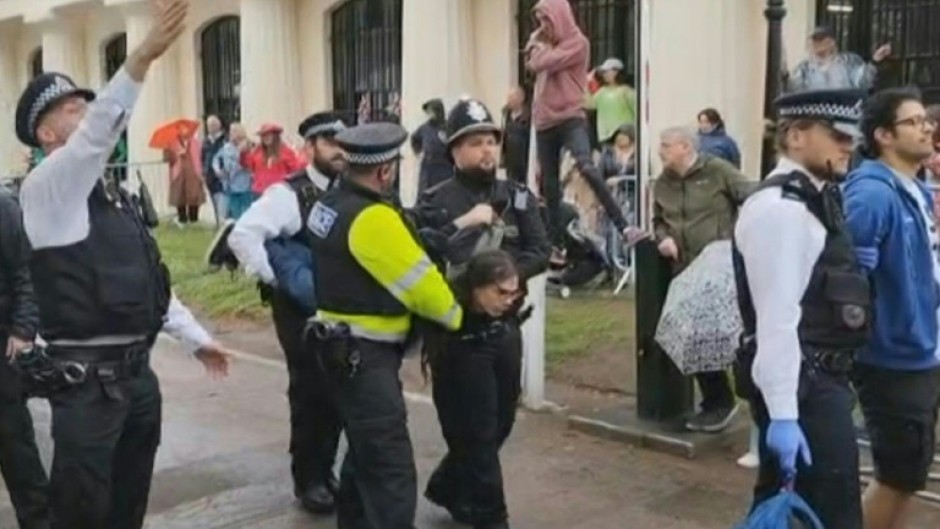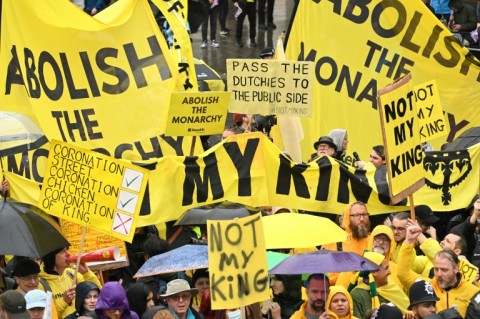
LONDON - UK police defended their tactics Saturday after attracting criticism for arresting leading members of the anti-monarchy group Republic as they prepared to protest the coronation of King Charles III in central London.
The capital's Metropolitan police detained six organisers from the pressure group and seized hundreds of their placards, Republic said.
Republic chief executive Graham Smith was among those detained near Trafalgar Square, before he had a chance to wave the signs declaring "Not my king."
In a statement, the Met insisted it understood "public concern following the arrests" but that it had a duty to police protests "in a proportionate manner in line with relevant legislation".
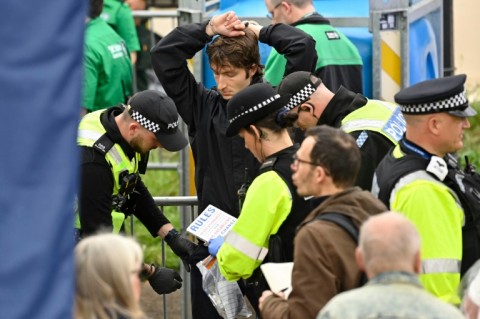
"We also have a duty to intervene when protest becomes criminal and may cause serious disruption," Commander Karen Findlay, who led the huge coronation security operation, added.
"This depends on the context. The coronation is a once-in-a-generation event and that is a key consideration in our assessment."
Human Rights Watch called the arrests "incredibly alarming".
"This is something you would expect to see in Moscow, not London," the rights organisation's UK director, Yasmine Ahmed, said.
"Peaceful protests allow individuals to hold those in power to account -- something the UK government seems increasingly averse to."
'Dystopian'
The arrests came just days after UK police forces were controversially granted new anti-protest powers by the government following years of disruptive demonstrations by environmental activists.
It expands protest-related offences to include locking-on and carrying lock-on devices, extends police stop-and-search powers, and allows for new court orders to prevent people from attending demonstrations.
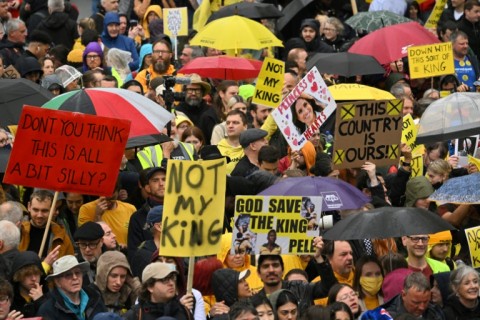
Police also arrested around 20 members of Just Stop Oil on Saturday in central London, the environmental campaign group said in a statement.
"Their intention was only to display T-shirts and flags," Just Stop Oil said.
"This is a massive authoritarian overreach," it added, claiming that none of those arrested had "glue, paint or any plans to disrupt the coronation.
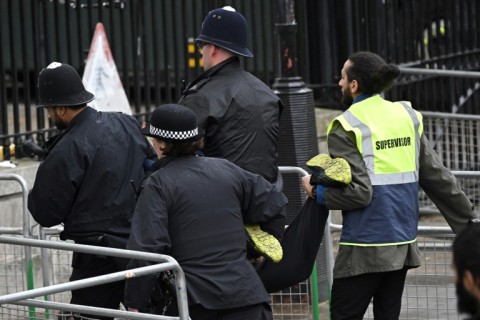
"New policing laws mean we're now living in a dystopian nightmare -- this disgraceful overreach is what you'd expect in Pyongyang, North Korea, not Westminster."
However, the Met said it had received prior information that protesters were determined to disrupt the processions element of the coronation.
"This included information that individuals would attempt to deface public monuments with paint, breach barriers and disrupt the official movements," the force added.
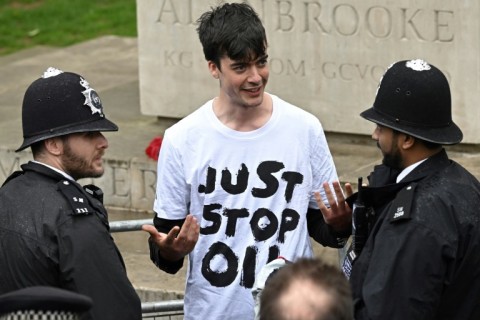
It deployed 11,500 officers Saturday as well as facial-recognition technology that civil liberties organisations branded "authoritarian".
In total, officers made 52 arrests for alleged affray, public order offences, breach of the peace and conspiracy to cause a public nuisance.
Reports said one man was held in St James's Park for carrying a megaphone.
"It could scare the horses," a police officer at the scene said, according to a Sky News television reporter present.
'Low tolerance'
Amnesty International's chief executive Sacha Deshmukh joined the criticism.
"Merely being in possession of a megaphone or carrying placards should never be grounds for a police arrest," he said.
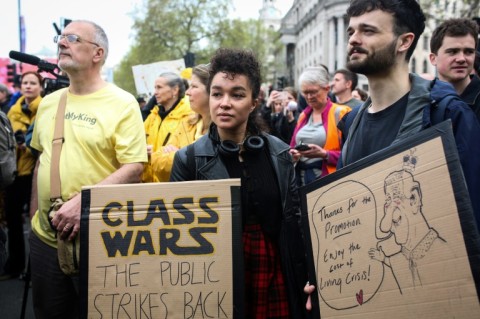
Republic, which wants Britain's constitutional monarchy replaced by an elected head of state, had been vocal about its protest plans.
But Smith said last week it had no plans to disrupt the procession.
Republic's director Harry Stratton, 30, said activists were carrying placards near Trafalgar Square when around 20 officers stopped and searched them.
"Graham and our volunteers asked why and they said 'we will find that out'," Stratton said. "After that they arrested them, saying 'we are seizing all these placards'."
The Met, which this week had vowed "low tolerance for any disruption", earlier tweeted that four people had been held there "on suspicion of conspiracy to cause public nuisance.
"We seized lock-on devices," it added, referring to newly outlawed contraptions used by demonstrators to attach themselves to each other, an object or the ground.
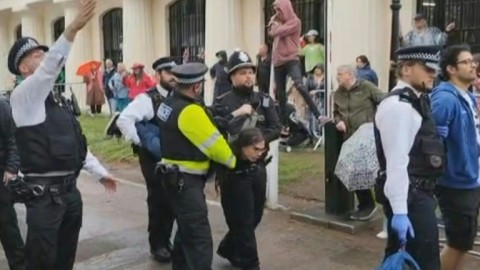
"They arrested Republic's key organisers, confiscated Republic's official placards, photographed us like we were criminals & erected barriers in front of our protest so the king would not see us," he tweeted.

